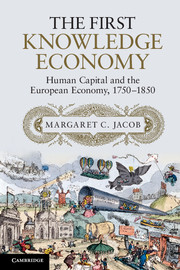Book contents
- Frontmatter
- Contents
- List of Figures
- List of Maps
- Acknowledgements
- Introduction
- 1 A portrait of early industrial lives
- 2 The knowledge economy and coal
- 3 Technical knowledge and making cotton king
- 4 Textiles in Leeds
- 5 The puzzle of French retardation I
- 6 The puzzle of French retardation II
- 7 Education and the inculcation of industrial knowledge
- Conclusion
- Bibliography
- Index
- References
5 - The puzzle of French retardation I
Reform and its antecedents
Published online by Cambridge University Press: 05 June 2014
- Frontmatter
- Contents
- List of Figures
- List of Maps
- Acknowledgements
- Introduction
- 1 A portrait of early industrial lives
- 2 The knowledge economy and coal
- 3 Technical knowledge and making cotton king
- 4 Textiles in Leeds
- 5 The puzzle of French retardation I
- 6 The puzzle of French retardation II
- 7 Education and the inculcation of industrial knowledge
- Conclusion
- Bibliography
- Index
- References
Summary
“Retardation” is a mean word. Recently it has become impolite to apply it to people with disabilities or learning disorders, whatever their source. Perhaps national economies should also be exempt from such seemingly harsh judgment. Surely retardation in productivity can be understood only in relation to someone else’s advance, and, of course, what we label as “retarded” may have seemed quite normal to contemporaries. How dare we arrogantly tumble into the past and pronounce a historical judgment?
We dare to do so in relation to France in the period from 1750 to 1850 precisely because the French at the time made similar observations, even if they politely shied away from using “retarded” when describing their anxieties about “our rival,” England. It had become a mirror, and in it contemporaries saw a reflection of French deficiencies. French observers sent by the government to Britain routinely remarked on how the English had vastly improved the use of coal in the manufacture of iron, thus achieving “a marked superiority … over all other European countries.” A French engineer hoped “that France will not remain always foreign to this new source of prosperity.” Aided by the hospitality of their engineering hosts, the engineers scurried about British coal fields making exact descriptions of the types and quantities of coal to be found. Competition did not preclude the fraternizing of men of science; lest we forget, there was still competition.
- Type
- Chapter
- Information
- The First Knowledge EconomyHuman Capital and the European Economy, 1750–1850, pp. 136 - 159Publisher: Cambridge University PressPrint publication year: 2014



